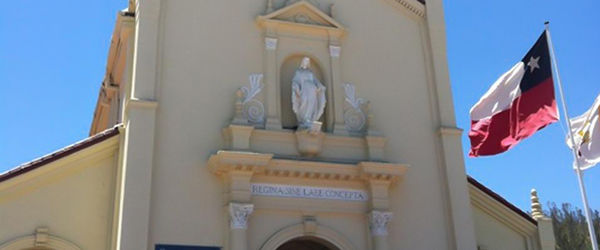Chávez inspires me. He lived his Catholic faith with deep devotion and courage. And his love for God led him to struggle for justice and dignity for the poor. It is fitting that we remember this anniversary as Congress begins debating comprehensive immigration reform. The legislation that is being introduced this week in the U.S. Senate is long overdue. Immigration reform is the civil rights test of our generation. Many people still don’t understand the Church’s commitment to this cause. For me it’s a question of human rights and human dignity. It is a question of who we are as people and as a nation. It’s true that many immigrants crossed our borders without first getting a visa from our government. Others came in through proper channels but decided to stay after their visas or other temporary permits ran out. This is not good. We are a nation of laws. But for almost 20 years, our nation chose not to enforce our laws. We looked the other way because we needed these immigrants for our construction companies, service industries and farms. That’s a difficult truth. These men and women came here to work — and all of us have been depending on and benefitting from their work. Undocumented immigrants should be held accountable. The question is, How? Is it fair for our country not to enforce its laws for many years, and then suddenly to start punishing people who broke these laws? I don’t think so. But that’s our policy right now. And it’s a cruel policy. The problem is the people we are punishing have become our neighbors. Most of those we call “illegal” have been living here for five years or more — two-thirds have been here for at least a decade. Almost half are living in homes with a spouse and children. In the last four years alone we have deported more than 1 million people. About a quarter of them were living in a home with their children and families. Of course, we are not just talking about “statistics.” We are talking about families. We’re talking about parents who, with no warning, won’t be coming home for dinner tonight — and who may not see their families again for a decade at least.Because of the broken logic of our current laws, it can take more than 10 years to get into this country legally. The waiting lists are even longer for applicants from most Latin American countries. So we need to understand what it really means when politicians and people in the media say things like, “Illegal immigrants should leave the country and get back in line to enter the country legally.” When we say that, we’re asking them to choose not to see their spouse, their children, their relatives for a decade or more. Is that a fair question to ask them? What would we do if we were faced with that kind of choice? Would we follow a law that means maybe never seeing our families again? These are some of the hard questions that we have to ask ourselves as our leaders begin debating immigration reform. How we respond is a challenge to our conscience — and a measure of our humanity.The U.S. Bishops believe that real reform means providing a generous path to citizenship and a system that supports families and children. We want reforms so that immigrant families can remain together. We want reforms so that migrant farmworkers and others are not exploited. And we want reforms so our brothers and sisters can live with the dignity that God intends for them. So let us pray this week for our leaders and for our country and for the millions of our neighbors who are waiting for true immigration reform. And let us try to live our faith during these important debates. César Chávez once said: “I think there are three elements to my faith. It’s God, myself and my neighbor. … I’m Catholic traditional. I go to Church regularly and faithfully. … But besides that … I go out and do things. … I think Christ really taught us …. Clothe the naked, feed the hungry and give water to the thirsty. It’s very simple stuff and that’s what we’ve got to do. … We’ve got to give our faith an essence through deeds.” Let us ask Our Lady of Guadalupe, the Mother of the Americas, to help us to live our faith through deeds.”Follow Archbishop Gomez at: www.facebook.com/ArchbishopGomez.{gallery width=100 height=100}gallery/2013/0419/gomezcol/{/gallery}

